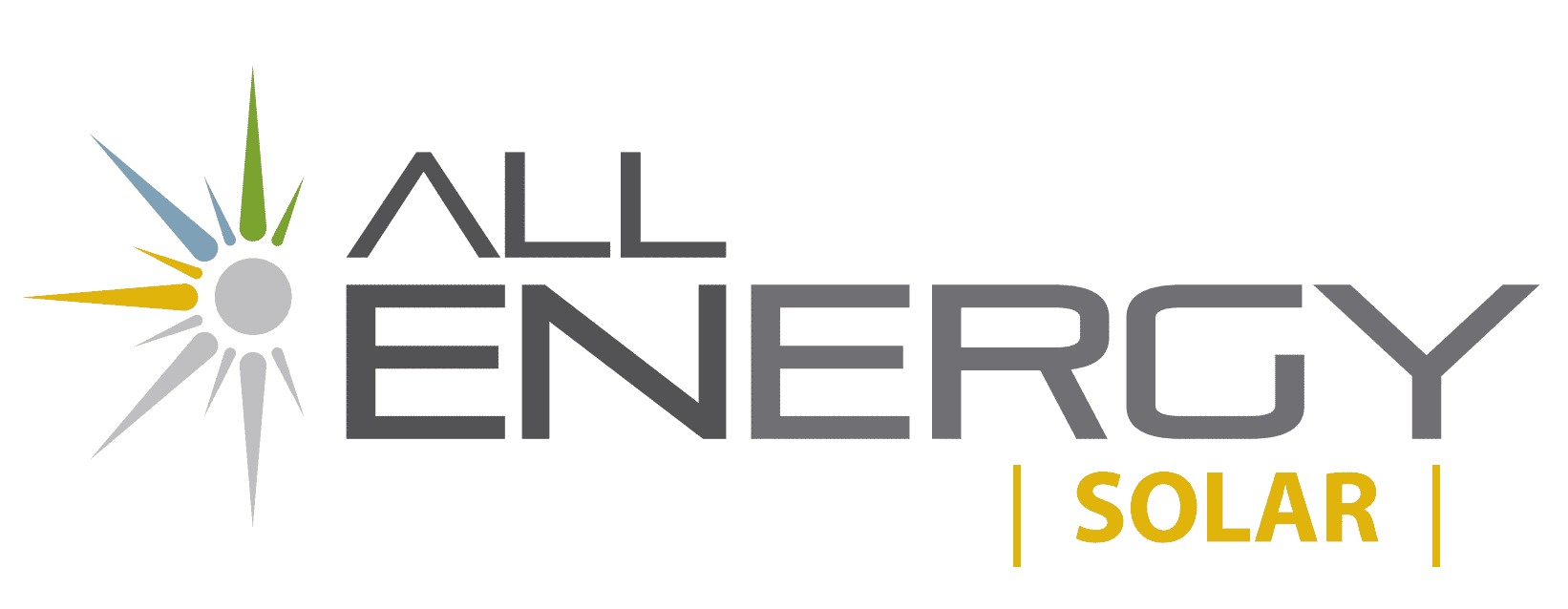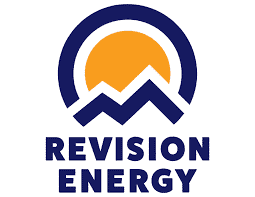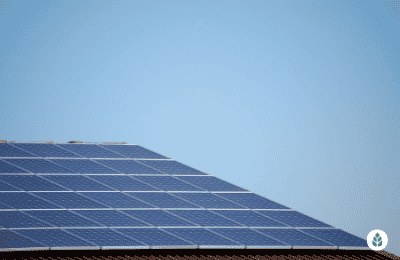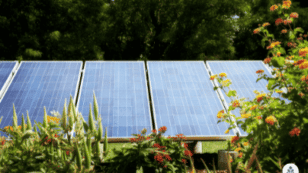
How Much Do Solar Panels Cost in New Hampshire? (2024 Savings Guide)
In this guide on the cost of solar panels in New Hampshire, you’ll learn:
- What the average cost of going solar in The Granite State is
- How New Hampshirites can save money when going solar
- Which local installation companies have the best prices
Each product and or company featured here has been independently selected by the writer. You can learn more about our review methodology here. If you make a purchase using the links included, we may earn commission.
Going solar in New Hampshire will save more than converting to clean energy in just about any other state. However, while most systems pay for themselves and then save an additional $57,000+ in NH, the per-watt cost for solar equipment is higher than the national average.
In this guide, we’ll be discussing the cost of solar panels in New Hampshire, including why the overall system price is lower even though the per-watt cost is above average, as well as how you can save money on your solar project.
What Will Your Solar Panel System Cost in New Hampshire?
The typical cost of photovoltaic (PV) equipment in New Hampshire is $3.77.
Given the below-average energy demands in the area, residents typically only need a 6.5 kilowatt (kW) system. With the local per-watt price at $3.77, that means an all-in system price of $24,505 or just $17,154 after the federal solar investment tax credit (ITC).
The size of the system you need is one of the most significant cost factors to consider, and system size requirements are usually based on home size and monthly energy demands. The table below includes some more specific information about the cost of solar panels in NH based on the size of the array you need.
| Solar System Size | Energy Use (per month) | House Size (sq ft) | Total Cost | Cost After the Federal ITC | Energy Savings (over 25 years, after system is paid off) |
| 4 kW | 400 kWh | 1,200 | $15,080 | $10,556 | $24,580 |
| 5 kW | 500 kWh | 1,400 | $18,850 | $13,195 | $30,725 |
| 6 kW | 600 kWh | 1,600 | $22,620 | $15,834 | $36,870 |
| 7 kW | 700 kWh | 1,800 | $26,390 | $18,473 | $43,015 |
| 8 kW | 800 kWh | 2,000 | $30,160 | $21,112 | $49,160 |
| 9 kW | 900 kWh | 2,200 | $33,930 | $23,751 | $55,305 |
| 10 kW | 1,000 kWh | 2,400 | $37,700 | $26,390 | $61,450 |

All Energy Solar

Regional Service
Average cost
Pros
- Full-service home energy solutions
- Excellent reputation
- NABCEP-certified technicians
Cons
- Expensive

ReVision Energy

Regional Service
Average cost
Pros
- Comprehensive service offerings
- Certified B Corp
- Many years of experience
Cons
- Relatively short workmanship warranty
- No leases or PPAs

New England Clean Energy

Regional Service
Average cost
Pros
- Many financing options
- Competitive pricing
- Great warranty coverage
Cons
- Limited brands of solar equipment available
- Slightly limited service offerings
How Do New Hampshire’s Solar Prices Compare to the National Average?
The average per-watt cost for solar panels in New Hampshire of $3.77 is one of the highest in the country and well above the national average of $3.33. That means your money doesn’t go as far in New Hampshire on a watt-per-dollar or panel-per-dollar basis as it would in most other states.
However, the all-in cost of a solar energy system in New Hampshire is significantly lower than the national average, mostly because energy demands in the area are some of the lowest in the country, so residents can get away with smaller and more affordable systems.
The typical total cost of a solar array in NH is $24,505 before the federal credit and $17,154 after the credit. Compared to the national averages of $29,970 and $20,979, respectively, residents in the Granite State pay close to $5,000 less for a solar system before the credit and over $3,000 less after the credit.
Ultimately, while your money doesn’t go as far in terms of watts or output per dollar, you will enjoy below-average installation prices thanks to the smaller system size requirements in New Hampshire.
What Are the Main Factors of Solar System Costs in New Hampshire?
The average cost to go solar in New Hampshire might be around $17,154 after the ITC is accounted for, but it’s not uncommon for installation costs to fall as low as $10,500 or as high as $26,400. The factors below play the most significant roles in system totals:
- The below-average energy demands in New Hampshire
- The declining net metering policy in the state
- The abundant sunlight in New Hampshire
New Hampshire’s Low Energy Needs
The biggest reason PV installation prices are well below average in New Hampshire is the relatively low energy demands. Residents use an average of around 630 kilowatt-hours (kWh) of electricity per month, which is below average and one of the lowest rates of consumption in the nation.
Lower energy needs mean that smaller systems are required to offset energy costs. Smaller systems mean fewer panels and significantly lower equipment costs overall.
If New Hampshirites needed similarly sized solar arrays to the national average, the installation price would be well above the national average due to the high per-watt pricing in the area. Instead, all-in system totals remain low because they need to offset below-average energy consumption each month.
The Declining Net Metering Program in NH
Net metering is a policy that lets you overproduce with your system when the sun is shining and then use that banked excess energy to offset consumption at night or on cloudy days when your panels wouldn’t otherwise make up for your consumption. In areas with one-to-one net metering programs, solar batteries can be helpful for maintaining electricity through power outages, but they don’t provide much additional value.
New Hampshire’s net metering program used to be one-to-one, but the state recently moved to net metering 2.0 and has net metering 3.0 in the works. These updated programs decrease the value of your excess energy, making it less and less likely to offset your electricity rates without installing a solar battery.
Solar batteries will bump up your system installation costs by around $10,000 or more. For customers who want the best chance of a $0 utility bill, a battery is more or less a must-have. We still don’t recommend a battery because the cost is high, and the value it adds is minimal, given the current net energy metering policy.
However, if you’re an EverSource customer and can get access to the EverSource ConnectedSolutions program, you could get a battery cashback incentive averaging around $3,000. In that case, opting for a battery might be beneficial in the long run.
The Availability of Sunlight in the State
New Hampshire homeowners see around 198 sunny days per year, which is just below the national average of 205. This is plenty of sunlight to produce sufficient energy to offset energy consumption, especially in an area like New Hampshire, where the demand for electricity is low.
While most tier-one panel brands should be sufficient for offsetting consumption, we still recommend investing in a high-efficiency panel brand like Maxeon/SunPower. These panels produce more usable electricity in all weather conditions than any other panel in the solar industry, giving you the best chance of maximizing your solar savings.
Optimizing your system for energy production is especially beneficial in a place like New Hampshire, where the average energy prices are well above what you’d see in most states. Every kWh offset in NH is going to save you more than it would in most other states.
As such, we feel that a more expensive but higher-efficiency panel will save you the most money over time. This is especially true because panels in NH are expected to be covered by snow for extended periods of time, which can cause significant dips in production.
Watch Below: How Much Does It Cost to Go Solar in New Hampshire?
Additional Costs of Going Solar in New Hampshire
When most homeowners consider the cost of going solar in New Hampshire, they think about the price of the panels and any major add-on products, like solar batteries. There are some additional costs to consider, which we’ll discuss below.
- Additional solar equipment:Panels and batteries will make up the bulk of your solar equipment costs, but there are some other components you should consider that can contribute to your total system price. Things like inverters, wiring, mounting racks and conduit are required for most solar arrays and could add a few hundred dollars to your total. Squirrel guards and snow guards are also recommended for New Hampshire PV systems.
- Building permits: All municipalities in New Hampshire require permits before your solar array can be installed. Application fees typically fall between $25 and $350, so the price is nominal compared to the rest of your system. You’ll also need inspections to close out your permits after the system is installed, and you could be subject to re-inspection fees if you miss your inspection, depending on where you live.
- Inspections and interconnection: Your electric company requires an interconnection application and final system inspection before your system is turned on and connected to the grid. Most electric companies in New Hampshire charge fees for these services, usually coming in at under $150.
- Product markup and administrative fees: Finally, every solar installation company in the state charges different prices for labor and administration services, like filing for permits and tax incentives. They can also mark up the equipment they install, leading to differences in pricing that can total several thousand dollars in some cases.
What Maintenance Costs Can Solar Owners Expect in New Hampshire?
Going solar in New Hampshire is somewhat expensive, but thankfully, the ongoing cost of owning solar in the area should be minimal, if not non-existent. Generally speaking, you shouldn’t see any necessary maintenance costs in New Hampshire.
Some panel owners choose to get panel cleaning services one to two times a year, often for between $125 and $175 per cleaning. This can keep dirt, pollen and other debris off of the panels, which can help keep efficiency high. However, we don’t believe these services are needed, as the snowfall and rainfall in the area should keep your panels plenty clean.
Any more serious issues with your panels should be covered by the solar panel warranties you get with your system. It’s rare for homeowners in New Hampshire to have to pay for panel repair or early replacement inside of their warranty coverage.
Which Solar Financing Options Will Help You Save the Most in New Hampshire?
Depending on the installer you choose, you’ll have access to any of four payment options: cash purchases, solar loans, solar leases and power purchase agreements (PPAs).
Paying in cash is the least realistic option because it requires that you pay for the entire system upfront. With that being said, though, cash payments are more accessible in New Hampshire than in most other states since the average upfront costs are a few thousand dollars below the national average.
A cash purchase means you’ll avoid paying interest or monthly fees for your panels. You’ll own the system immediately, which means it will start paying for itself right away in savings on your electric bills. You’ll get the fastest payback period, which means the highest overall energy savings — an average of $57,051 in New Hampshire.
A solar loan usually comes with no down payment requirement, making it a more accessible and realistic option. You’ll pay interest via a loan that will reduce your energy savings over time by around $5,000, but that still means savings of approximately $52,000 in New Hampshire.
Leases and PPAs save far less, usually around $5,000 over the length of the agreement. They are far less beneficial from a savings standpoint, and they don’t let you take the federal credit, which is worth over $5,500 in your area, on average. However, they have no down payment requirements and usually have less strict credit score requirements than loans, so they’re the most accessible options.
Before deciding which options will work for you, we recommend using our solar calculator to see what your solar power system will cost. Once you know the price, you can see if you can swing a cash purchase.
If you can’t, you can use the table below to decide which option will benefit you most and still fit within your budget. We recommend checking out SunPower and New England Clean Energy, two companies that operate in New Hampshire and accept all of the possible financing options.
| Financing Method | Total 25 Year Savings (estimated) | Initial Costs (estimated, after the federal tax credit) | Monthly Payments (estimated) | Payback Period (estimated) |
| Cash | $57,051 | $17,154 | $0 | 8 years |
| Loan | $52,000 | $0 | $125 – $300 | 12 years |
| Lease | $5,000 | $0 | $175 | N/A |
| PPA | $4,000 | $0 | $175 | N/A |
What Are Other Ways You Can Save When Going Solar in New Hampshire?
The payment option you choose for your home solar array will play a pretty big role in your long-term solar savings. There are some additional things you can do to keep your upfront and long-term costs as low as possible. These include the following:
- Take advantage of local solar system incentives
- Choose a high-efficiency panel brand
- Consider solar batteries carefully
We’ll explain how and why these strategies can save you money in the following sections.
Take Advantage of New Hampshire’s Solar Incentives
One of the easiest ways to keep your upfront solar conversion costs down is to take advantage of the solar incentives available in New Hampshire.
All residents have access to the federal credit, which provides a credit to your owed income taxes in the amount of 30% of your solar panel installation total. In NH, that comes out to an average potential savings of $7,352.
There’s also a state solar rebate called the Residential Renewable Electric Generation Rebate Program, which can provide an average savings of around $1,000, a property tax exemption that saves a few thousand dollars over time and some local incentives available from utility companies like EverSource.
Solar incentive programs are relatively easy to file for but can bring down your system total by thousands of dollars.
Choose a High-Efficiency Panel Brand
Another great way to maximize your savings in the long run is to choose to install a high-efficiency panel brand like Maxeon. Doing so will cost more upfront, but these panel brands tend to pay for themselves more quickly and save you more money in the long run.
New Hampshire has a less-than-ideal net metering program, which credits customers for excess energy at a below-retail rate. That means you might not generate enough excess power in sunny conditions to offset your energy consumption at night, on cloudy days or when your panels are covered by snow.
While you’ll pay more for a high-performance panel, they will produce more electricity, giving you a better chance to reduce your energy bills to $0. Maximizing production is especially helpful in New Hampshire, where any energy you don’t offset will cost you significantly more than it would in most other states.
Consider Solar Batteries Carefully
Finally, we implore you to think carefully about solar batteries. Batteries are convenient during power outages and can prevent you from losing power. However, they generally don’t pay for themselves unless you don’t have access to net metering. Batteries offer effective net metering, storing energy to use when the sun isn’t shining at no charge. They basically give you the one-to-one net metering setup that is missing in NH.
Although the net metering policy in New Hampshire isn’t ideal, it does offer enough benefit to make it so that batteries likely won’t pay for themselves.
Overall, we’d recommend shying away from solar batteries unless you want to be able to maintain power through blackout conditions. Avoiding batteries will save you $10,000 or more on your solar panel installation costs.
What Are the Typical Costs of New Hampshire’s Solar Installers?
The solar installer you choose will play a role in your solar conversion costs, as all of the providers in the state charge different prices for labor and equipment. To help you decide which installers are likely to meet your budgetary constraints, we’ll include some relative pricing for what we believe are the best solar installers in New Hampshire in the table below.
| Solar Company | Superlative | EcoWatch Rating (Out of 5.0) | BBB Rating | Average Cost ($–$$$$$) |
| SunPower | Best National Provider | 5 | A+ | $$$$ |
| All Energy Solar | Best Regional Provider | 4.5 | A+ | $$$$ |
| Revision Energy | Best Social Impact | 4.5 | A+ | $$$ |
| New England Clean Energy | Best Local Installer | 4.5 | A+ | $$$ |
| Granite State Solar | Best Customer Service | 4.5 | A+ | $$$ |
How Are Solar Costs and Regulations Trending In New Hampshire?
According to the Solar Energy Industries Association (SEIA), the average cost of solar equipment in New Hampshire has dropped by around 54% over the past ten years. That means the average system that costs $17,154 after the federal tax credit today would have totaled over $35,000 a decade ago.
We expect that the cost of PV equipment will continue to decline in the coming years overall, especially in New Hampshire, where the per-watt price is still one of the highest in the nation. Improved production capabilities and demand in the Granite State should facilitate lower and lower prices over time.
As far as incentives go, we believe some of those that are currently available will either disappear or become less beneficial in the near future. The state’s renewable portfolio standard (RPS) goal currently calls for a little over 25% of the state’s energy to come from renewable energy sources by 2025.
Even with that goal in mind, the state has made the net metering program less beneficial in the last few years, implementing net metering 2.0 and now 3.0, which leaves customers with lower credit rates for their excess energy.
We wouldn’t be surprised if the policy gets downgraded again in the coming years, although there is no evidence that other incentives currently available in the state will go away.
With prices lower than they’ve ever been and incentives likely on the decline, now is the best time to go solar in New Hampshire. To convert to renewable energy before incentives get less attractive, you can use the tool below to get free solar quotes and get the process started.
Read More About Going Solar
- Is it Worth Going Solar in New Hampshire?
- Best Solar Companies in New Hampshire
- How Much Can You Save With Solar Incentives in New Hampshire?
The cost information presented in this article is derived from a comprehensive analysis, incorporating data from multiple industry sources. The average cost per watt per state was calculated based on figures from Consumer Affairs, Energy Sage, and Berkeley Lab’s Electricity Markets & Policy Department. Additionally, monthly energy consumption and the average monthly cost of electricity were sourced from the U.S. Energy Information Administration, ensuring a well-rounded and accurate representation of the information presented.
FAQs: New Hampshire Solar Panel Costs
Given the rising demand for solar in New Hampshire, we get a lot of questions from residents about the costs involved with converting to renewable energy. We’ll answer some of the more common questions we see below.
The average 6.5 kilowatt system in New Hampshire — at the local cost per watt of $3.77 — costs $24,505. This can effectively be reduced to $17,154 after taking the federal tax credit, which is available to all New Hampshire residents. Keep in mind that system total can vary based on many different factors, including your monthly energy consumption, the installer you choose and more.
In most cases, yes! In fact, converting to solar in New Hampshire is more valuable than it is in most other states. Low energy demands in the area mean smaller and more affordable systems are the norm, with the typical system totaling around $5,000 below the national average. The high cost for energy in the state means that PV panels save far more than they would in most other areas, with the average resident seeing their panels pay for themselves and then save an additional $57,000+ on average.
Yes, New Hampshire provides several beneficial incentives for installing solar panels. All residents have access to the federal solar tax credit, the statewide solar rebate program — the Residential Renewable Electric Generation Rebate Program — a property tax exemption and net metering. There are also local perks available for EverSource customers that install solar batteries.
Yes! Not only do panels reduce your carbon footprint and reliance on fossil fuels, but according to research from Zillow, solar panels will bump up your home value by around 4.1% in New Hampshire. Thanks to the statewide property tax exemption for PV equipment, that increase in value won’t negatively affect your property taxes.
Top Solar Installers In New Hampshire Cities
Comparing authorized solar partners
-
- Full-service home energy solutions
- Excellent reputation
- NABCEP-certified technicians
- Expensive
A+Outstanding Regional Installer
Having trouble deciding? Click below and use our process to receive multiple quotes instead:

 233k
233k  41k
41k  Subscribe
Subscribe 





